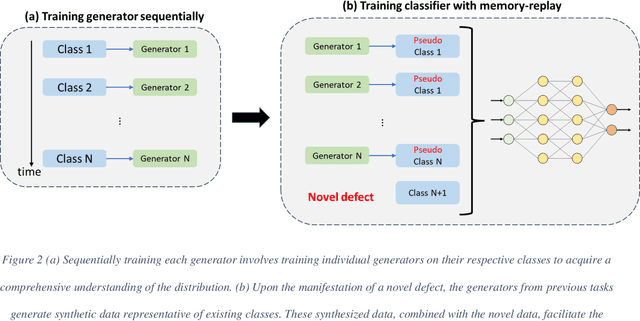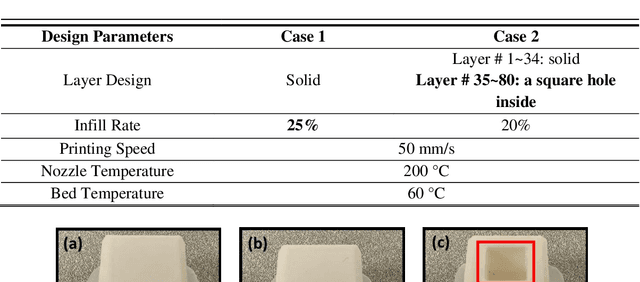Tianxin Xie
PhyAVBench: A Challenging Audio Physics-Sensitivity Benchmark for Physically Grounded Text-to-Audio-Video Generation
Dec 30, 2025Abstract:Text-to-audio-video (T2AV) generation underpins a wide range of applications demanding realistic audio-visual content, including virtual reality, world modeling, gaming, and filmmaking. However, existing T2AV models remain incapable of generating physically plausible sounds, primarily due to their limited understanding of physical principles. To situate current research progress, we present PhyAVBench, a challenging audio physics-sensitivity benchmark designed to systematically evaluate the audio physics grounding capabilities of existing T2AV models. PhyAVBench comprises 1,000 groups of paired text prompts with controlled physical variables that implicitly induce sound variations, enabling a fine-grained assessment of models' sensitivity to changes in underlying acoustic conditions. We term this evaluation paradigm the Audio-Physics Sensitivity Test (APST). Unlike prior benchmarks that primarily focus on audio-video synchronization, PhyAVBench explicitly evaluates models' understanding of the physical mechanisms underlying sound generation, covering 6 major audio physics dimensions, 4 daily scenarios (music, sound effects, speech, and their mix), and 50 fine-grained test points, ranging from fundamental aspects such as sound diffraction to more complex phenomena, e.g., Helmholtz resonance. Each test point consists of multiple groups of paired prompts, where each prompt is grounded by at least 20 newly recorded or collected real-world videos, thereby minimizing the risk of data leakage during model pre-training. Both prompts and videos are iteratively refined through rigorous human-involved error correction and quality control to ensure high quality. We argue that only models with a genuine grasp of audio-related physical principles can generate physically consistent audio-visual content. We hope PhyAVBench will stimulate future progress in this critical yet largely unexplored domain.
Hi-Reco: High-Fidelity Real-Time Conversational Digital Humans
Nov 16, 2025Abstract:High-fidelity digital humans are increasingly used in interactive applications, yet achieving both visual realism and real-time responsiveness remains a major challenge. We present a high-fidelity, real-time conversational digital human system that seamlessly combines a visually realistic 3D avatar, persona-driven expressive speech synthesis, and knowledge-grounded dialogue generation. To support natural and timely interaction, we introduce an asynchronous execution pipeline that coordinates multi-modal components with minimal latency. The system supports advanced features such as wake word detection, emotionally expressive prosody, and highly accurate, context-aware response generation. It leverages novel retrieval-augmented methods, including history augmentation to maintain conversational flow and intent-based routing for efficient knowledge access. Together, these components form an integrated system that enables responsive and believable digital humans, suitable for immersive applications in communication, education, and entertainment.
Sage Deer: A Super-Aligned Driving Generalist Is Your Copilot
May 15, 2025Abstract:The intelligent driving cockpit, an important part of intelligent driving, needs to match different users' comfort, interaction, and safety needs. This paper aims to build a Super-Aligned and GEneralist DRiving agent, SAGE DeeR. Sage Deer achieves three highlights: (1) Super alignment: It achieves different reactions according to different people's preferences and biases. (2) Generalist: It can understand the multi-view and multi-mode inputs to reason the user's physiological indicators, facial emotions, hand movements, body movements, driving scenarios, and behavioral decisions. (3) Self-Eliciting: It can elicit implicit thought chains in the language space to further increase generalist and super-aligned abilities. Besides, we collected multiple data sets and built a large-scale benchmark. This benchmark measures the deer's perceptual decision-making ability and the super alignment's accuracy.
Towards Controllable Speech Synthesis in the Era of Large Language Models: A Survey
Dec 09, 2024



Abstract:Text-to-speech (TTS), also known as speech synthesis, is a prominent research area that aims to generate natural-sounding human speech from text. Recently, with the increasing industrial demand, TTS technologies have evolved beyond synthesizing human-like speech to enabling controllable speech generation. This includes fine-grained control over various attributes of synthesized speech such as emotion, prosody, timbre, and duration. Besides, advancements in deep learning, such as diffusion and large language models, have significantly enhanced controllable TTS over the past several years. In this paper, we conduct a comprehensive survey of controllable TTS, covering approaches ranging from basic control techniques to methods utilizing natural language prompts, aiming to provide a clear understanding of the current state of research. We examine the general controllable TTS pipeline, challenges, model architectures, and control strategies, offering a comprehensive and clear taxonomy of existing methods. Additionally, we provide a detailed summary of datasets and evaluation metrics and shed some light on the applications and future directions of controllable TTS. To the best of our knowledge, this survey paper provides the first comprehensive review of emerging controllable TTS methods, which can serve as a beneficial resource for both academic researchers and industry practitioners.
Pseudo Replay-based Class Continual Learning for Online New Category Anomaly Detection in Additive Manufacturing
Dec 05, 2023



Abstract:The incorporation of advanced sensors and machine learning techniques has enabled modern manufacturing enterprises to perform data-driven in-situ quality monitoring based on the sensor data collected in manufacturing processes. However, one critical challenge is that newly presented defect category may manifest as the manufacturing process continues, resulting in monitoring performance deterioration of previously trained machine learning models. Hence, there is an increasing need for empowering machine learning model to learn continually. Among all continual learning methods, memory-based continual learning has the best performance but faces the constraints of data storage capacity. To address this issue, this paper develops a novel pseudo replay-based continual learning by integrating class incremental learning and oversampling-based data generation. Without storing all the data, the developed framework could generate high-quality data representing previous classes to train machine learning model incrementally when new category anomaly occurs. In addition, it could even enhance the monitoring performance since it also effectively improves the data quality. The effectiveness of the proposed framework is validated in an additive manufacturing process, which leverages supervised classification problem for anomaly detection. The experimental results show that the developed method is very promising in detecting novel anomaly while maintaining a good performance on the previous task and brings up more flexibility in model architecture.
 Add to Chrome
Add to Chrome Add to Firefox
Add to Firefox Add to Edge
Add to Edge